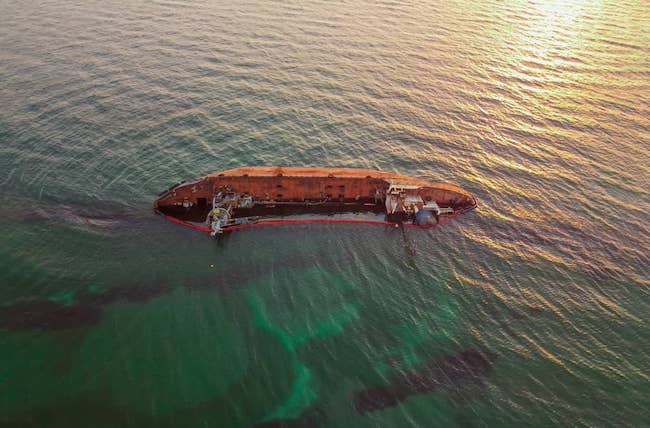

Do not delay salvage contracting

Regular columnist Simon Tatham examines a recent maritime accident report to highlight the risks of not taking the offered LOF
The International Group of P&I Clubs (IG) has been working on what it calls its Salvage Delay Project, an independent study into the increasing tendency for delays in the take up of emergency response services to vessels in distress putting life, the environment and property at unnecessary risk.
Initial findings around the causes of delay were presented at the ISU Associate Members Day in March this year, in advance of anticipated recommendations, with cross-industry support, to highlight problem areas and encourage better practices.
A classic example of such a situation unfolded recently in UK waters off the Humber concerning small container vessel Thea II, which is the subject of a report by the UK’s Maritime Accident Investigation Branch (MAIB).
This was a dramatic incident involving both the casualty and its attending harbour tug grounding in extreme conditions. An eventual salvage was only minutes before the casualty would have regrounded on a falling tide, followed by the disabling of one of the attending salvage tugs because the casualty’s crew had jettisoned over the side the harbour tug’s broken towline.
Prior to that, the casualty’s master reported that with engines lost, he was dragging anchor and required tugs. He was advised by his managers, “Towage is the worst option always …all officers must know. If towage is requested, you have to ask the insurance broker first.”
The master had failed to communicate the extreme severity of the conditions and his predicament. As a result, the MAIB concluded, the advice to the master was not to ask for assistance from tugs, nor sign Lloyd’s Open Form (LOF), while insurance brokers sourced suitable towage assets to recover the vessel.
In the meantime, two tugs had mobilised on the intervention of the harbour master and proceeded on speculation to the scene only to be kept standing by. They were offering LOF. Despite the harbour master invoking his authority by issuing a special direction to the ship’s master to engage the tugs’ lines, the master did not feel empowered to comply.
His natural authority and freedom to take decisions in relation to the safety of his vessel was compromised while the managers focused on getting the best possible commercial terms, at the expense of seeking a detailed understanding of the predicament.
With time running short, the office of the UK secretary of state’s salvage representative (SOSREP) now intervened.
A deadline was given by email to the casualty’s insurers that if the tugs’ lines were not taken, the SOSREP would issue a “formal direction” to do so. Under UK legislation, if a vessel fails to comply, action can be taken and the costs recovered from the owners, moreover the master will have committed a criminal offence and will be subject to prosecution.
The managers now understood the gravity of the situation and after one hour and 24 minutes of standby, an estimated 20 minutes before regrounding, the LOF was agreed and the tugs’ lines eventually were taken.
The disabled tug providing salvage assistance needed repairs to both its azimuth thrusters, which took 10 weeks.
As the MAIB report makes clear, such situations do not lend themselves to the negotiation of commercial terms.
Those terms can be and are frequently used in salvage, but are not designed for salvage situations, lacking the flexibility to cope with the unexpected.
For example, had that tug not been engaged on no-cure no-pay salvage terms but on Towhire, which the managers had been seeking to negotiate, those costs would have been borne unfairly by the tug’s owners and insurers under the knock-for-knock provisions.
Such costs are not directly recoverable under LOF, but the dangers to which a tug is exposed and the out-of-pocket expenditure arising from the operation are all factors to be taken into account under the Salvage Convention 1989 in assessing an award, which I am sure in this case will be a very generous one.
It is no wonder the IG is concerned to address such cases.

